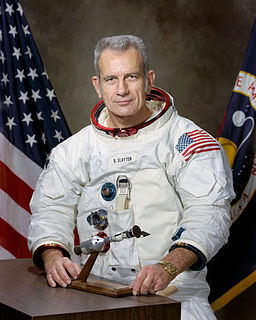A Quote by Percival Lowell
Now when we think that each of these stars is probably the centre of a solar system grander than our own, we cannot seriously take ourselves to be the only minds in it all.
Related Quotes
It is only when we want to take our lives out of the Father’s hands and have them under our own control that we find ourselves gripped with anxiety. The secret of freedom from anxiety is freedom from ourselves and abandonment of our own plans. But that spirit emerges in our lives only when our minds are filled with the knowledge that our Father can be trusted implicitly to supply everything we need.
Since, then, there is no objection to the mobility of the Earth, I think it must now be considered whether several motions are appropriate for it, so that it can be regarded as one of the wandering stars. For the fact that it is not the centre of all revolutions is made clear by the apparent irregular motion of the wandering stars, and their variable distances from the Earth, which cannot be understood in a circle having the same centre as the Earth.
It is possible to move through the drama of our lives without believing so earnestly in the character that we play. That we take ourselves so seriously, that we are so absurdly important in our own minds, is a problem for us. We feel justified in being annoyed with everything. We feel justified in denigrating ourselves or in feeling that we are more clever than other people. Self-importance hurts us, limiting us to the narrow world of our likes and dislikes. We end up bored to death with ourselves and our world. We end up never satisfied.
Just as our fingerprints are one-of-a-kind, so is our identity. Each of us is a once-only articulation of what humans can be. We are rare, unmatched, mysterious. This is why the quality of openness is so crucial to our self-discovery. We cannot know ourselves by who we think we are, who others take us to be, or what our driver's license may say. We are fields of potential, some now actualized, most not yet.
I feel that I'm in on the ground floor of something that human beings will be concentrating on for the next 1,000 years-if we don't destroy ourselves in the meantime. It's possible that 50 years from now we're going to end up out of this solar system, batting around the universe, at least within our galaxy, investigating other stars and other systems.


































